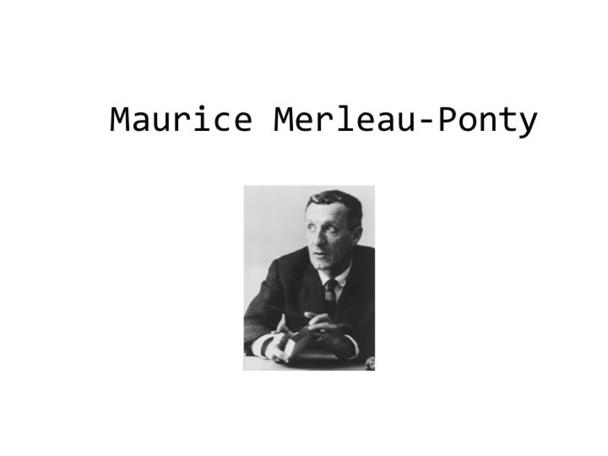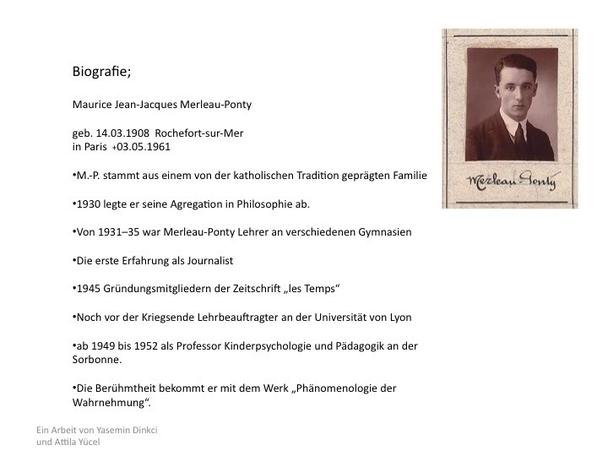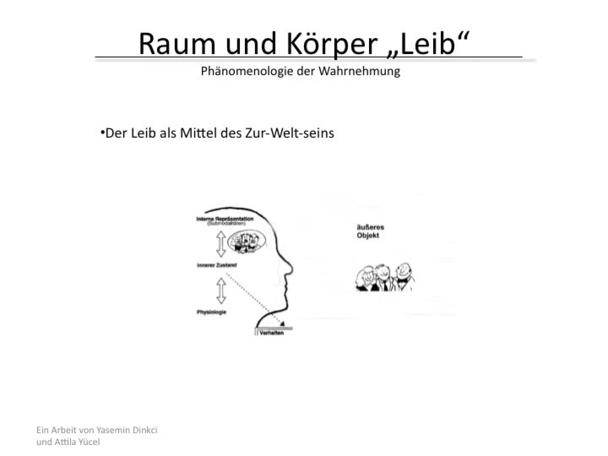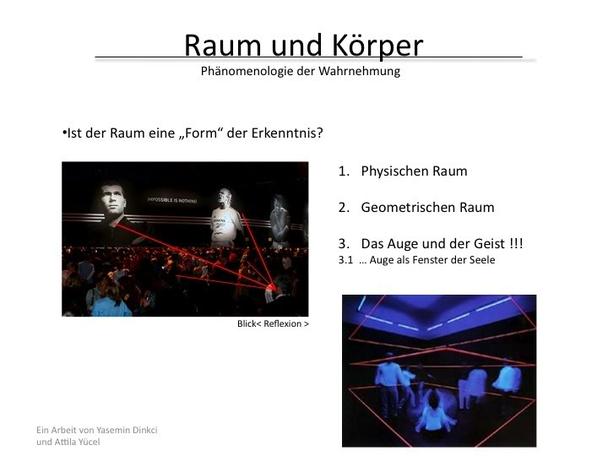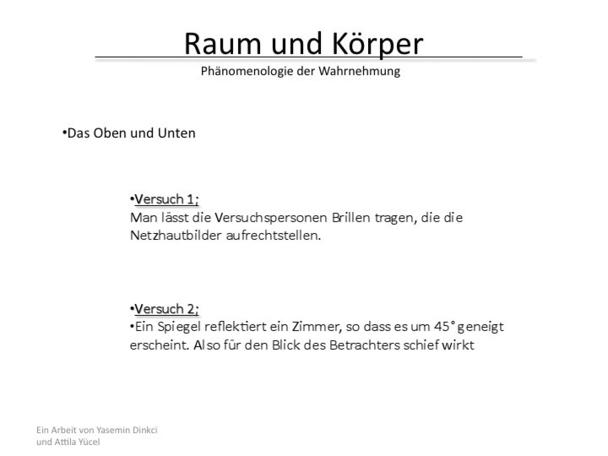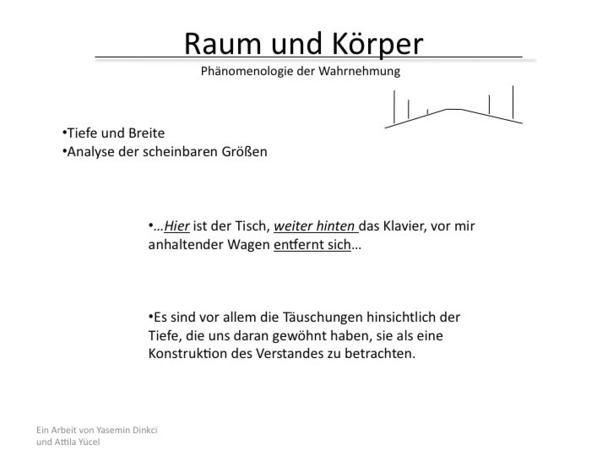Attila Yücel, Yasemin Dinkci, 20.2.2008
Merleau-Ponty, Maurice, french philosopher born in 14.3.1908 in Rochefort-sur-Mer, died in 3.5.1961 in Paris. Merleau-Ponty comes from one of catholic tradition stamped milieu. After the early death of the father the family moves after Le Havre and then after Paris where he finished the Baccaleureat in 1924. Already in this time he recognized his affinity for philosophy. During his visit of the Ecole Normale Superieure till 1926 to 1930 he becomes famous with Sartre, S. de Baeuvoir and Hyppolite. He concludes his study in 1930 with the Agregation in Philosophy. To his early teachers belong E. Brehier,J. Laporte and L. Brunschvig. Besides that the writings of Bergson become important for him. From 1931 till 1935 he teaches on the Lyceen in Beauvais and Chartres and from 1935 to 1939 he is repetiteur on the Ecole Normale Superieure school. He is very interested in phenomenology and figure theory. This is manifested through the influence of French psychologists like P. Guillaume, G. Politzer and H.Wallon. In this time Merleau-Ponty stands in close contact with G. Marcel. In 1935 to 1937 he is involved in the study group around the magazine “Esprit” which was founded by Mounier. In 1935 he visits the Hegel lecture of Kojeves and is engrossed in the study of Marx. In the same time he departs bit by bit from the Catholic Church. After short military service as a lieutenant in 1939-40 he is active as a teacher of the philosophy in Paris. For a short time he belongs to the opposition group of “Socialisme et liberte”. He begins with his university career with the conferment of the degree of the doctor in 1945. At first he becomes a teacher and then a professor for philosophy at the University of Lyon. Then he receives a appointment for child psychology and pedagogics at the Sorbonne (1949-52). In 1952 he teaches philosophy at the Collegue de France. The philosophical efforts are strongly characterized by the confliction about existentialism and marxism. Long time he stood at the side of J.P. Sartres. In 1945 he had the editorial responsibility with him for the newly founded magazine “Les Temps Modernes”. It comes to a discord when Merleau-Ponty settle up in 1955 with the political totalitarianism in his book “Les aventuras de la dialectique”. The reactions for that are very hard. B. Waldenfels differentiate 3 phases of academic development of M.P.’s: a early stage where the basic attitudes are formulated; a transition period and late pointed period which is manifested in the work of “Le visible et l’invisible” (after 1959).
As a teaching tool has been taken:
Maurice Merleau-Ponty zur Einführung
Phänomenologie der Wahrnehmung
